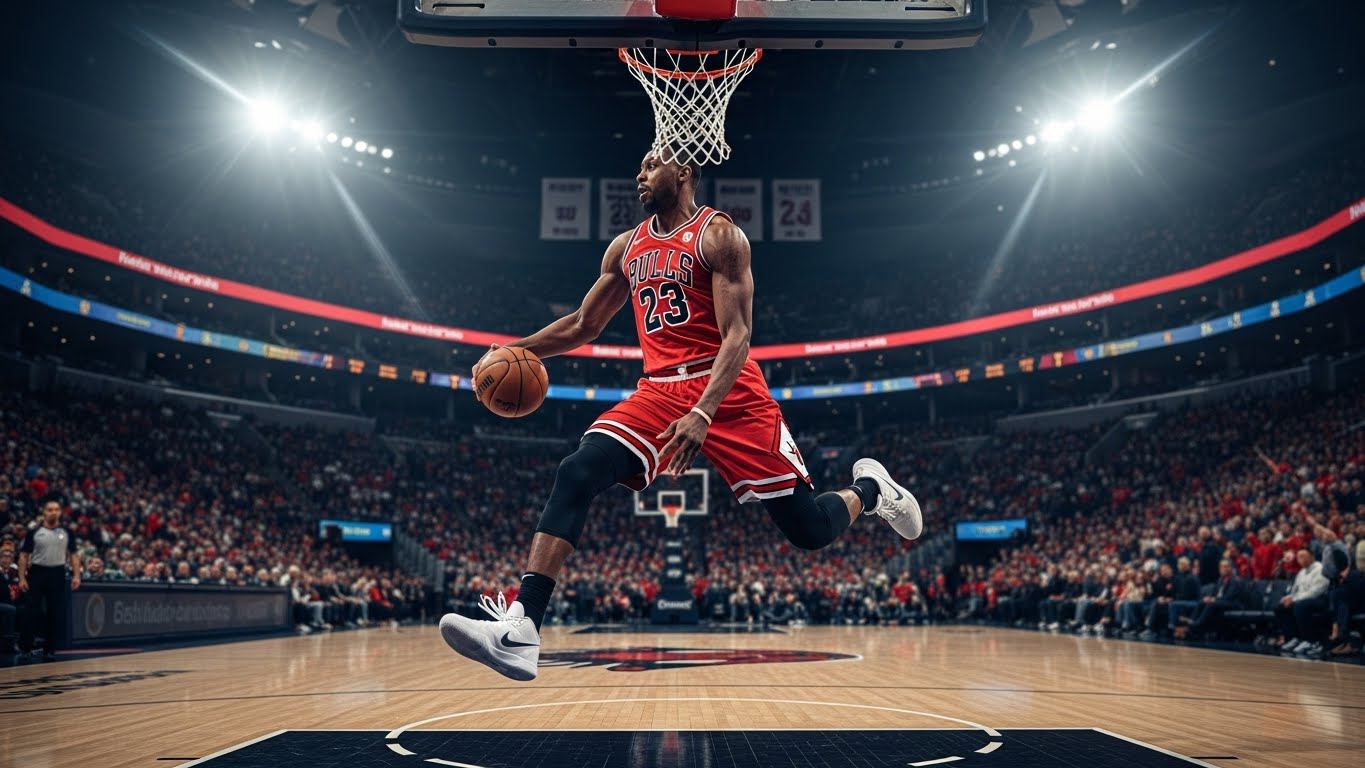Sports have always been an essential part of human culture, a way for people to test their limits, celebrate victories, and experience collective emotions. From local playgrounds to massive global stadiums, sports transcend borders and create shared moments that unite people from all walks of life. Yet, behind the spectacle and the thrills lies a world that many don’t often see—a world of dedication, unseen struggles, and larger-than-life stories. Let’s take a deeper dive into what makes sports not just a game, but a reflection of the human experience.
The Lifeblood of Sports: Passion and Purpose
What fuels an athlete’s drive? What motivates them to push through physical pain, mental fatigue, and the pressure of competition? The answer is simple: passion and purpose. While many see the glitzy rewards of victory or the fame that comes with success, the core of sports is rooted in a deep sense of passion for the game and the pursuit of something greater than oneself.
Athletes, at their heart, are driven by a love for their sport. Whether it’s the adrenaline rush of crossing the finish line or the joy of perfecting a skill, this passion is the foundation upon which their careers are built. But passion alone isn’t enough. Athletes also need a purpose—a reason to keep going when the road is tough. For some, it’s representing their country; for others, it’s setting personal records or inspiring the next generation of players. This sense of purpose fuels long hours of training, sacrifice, and perseverance, often unseen by the public eye.
The Mental Toughness Factor: Beyond Physical Strength
While most people think of sports as a physical contest, the mental aspect of competition is equally, if not more, important. It’s easy to admire the physical feats of an athlete—whether it’s a sprinter breaking a world record or a soccer player scoring a crucial goal—but the real challenge often lies in their ability to withstand mental pressure.
Mental toughness is the ability to stay calm under pressure, to keep a positive mindset in the face of adversity, and to perform when it matters the most. High-level athletes spend as much time training their minds as they do their bodies. Techniques such as visualization, meditation, and mindfulness have become essential tools for athletes aiming to sharpen their focus and resilience. In the heat of competition, it’s often the mental strength that sets the champions apart from the rest.
Take tennis, for instance. The mental endurance required to maintain focus during a five-set match, where every game could tip the balance, is a key factor in the success of players like Roger Federer and Serena Williams. It’s about pushing through self-doubt, controlling emotions, and finding the strength to perform when everything seems to be against you.
The Hidden Grind: The Road to Excellence
Behind every gold medal, every championship trophy, there is a long road of hard work and sacrifice. While the public often sees only the final moments of glory, the journey to success is a constant grind. Training for hours every day, pushing through injuries, and making personal sacrifices—this is the reality for most athletes.
The life of an elite athlete is a delicate balance between physical exertion and rest, competition and recovery. For instance, a professional basketball player might spend hours in the gym working on their shooting technique, followed by hours on the court for team drills. The rest of their day is dedicated to proper nutrition, mental preparation, and rehabilitation from any injuries. This cycle repeats endlessly in preparation for the next game, the next season, and the next challenge. It’s not just the performance on game day that defines an athlete; it’s the dedication that goes into every day leading up to that moment.
The Role of Coaches: Shaping Champions
No athlete achieves greatness alone. Behind every successful athlete is a coach or mentor who has played a crucial role in their development. Coaches are more than just strategists—they are psychologists, motivators, and life coaches, shaping not only the athlete’s game but also their character.
The relationship between an athlete and coach is often a deeply personal one. Coaches provide guidance, instill discipline, and push athletes to achieve their full potential. Great coaches recognize that every athlete is different and tailor their approach to meet the individual needs of each player. Whether it’s helping an athlete work through a slump or offering emotional support during tough times, coaches are often the unsung heroes behind an athlete’s success.
Take the case of legendary basketball coach Phil Jackson, who guided the Chicago Bulls and Los Angeles Lakers to multiple championships. Jackson was known for his ability to manage egos, foster teamwork, and maintain a calm demeanor even in high-stakes situations. His mental approach to coaching helped shape players like Michael Jordan and Kobe Bryant into the legends they are today.
The Global Impact of Sports: Unity in Diversity
While sports can be a personal journey for an athlete, they also have a profound impact on the world at large. From local communities to international audiences, sports have the power to unite people in ways that few other things can. The excitement of watching a major sporting event, such as the FIFA World Cup or the Olympic Games, brings people together, regardless of race, nationality, or background.
Sports transcend cultural barriers and create a universal language that everyone can understand. A soccer goal, a basketball dunk, or a track and field win evokes the same emotional reaction in people from different corners of the world. In this sense, sports have the unique ability to foster a sense of global community and collective identity.
Consider the impact of the 1995 Rugby World Cup in South Africa. The tournament played a pivotal role in uniting a country torn apart by apartheid. Nelson Mandela’s support for the national team became a symbol of hope and reconciliation. The event showed the world that sports could be a force for positive social change, transcending politics and uniting people with a shared sense of purpose.
The Business of Sports: The Business Side of the Game
Sports are not just about competition—they are also a massive industry. From media rights and sponsorships to merchandise and ticket sales, sports are a multi-billion-dollar business. The global sports economy is vast, with corporate partnerships and broadcasting deals driving much of the financial success of leagues and teams.
For athletes, the financial rewards can be immense. Endorsements, brand partnerships, and lucrative contracts elevate the financial status of the world’s top players. However, with this wealth comes a certain level of pressure. The public eye is always on these athletes, and their every move is scrutinized by fans, the media, and corporations.
But beyond the fame and fortune, the business of sports also affects the way the games are played. Teams are now seen as global brands, with merchandise and sponsorship deals often influencing decisions on player transfers, team management, and marketing strategies. Sports have evolved into a global entertainment industry, with everything from ticket sales to streaming rights contributing to the growth and success of sports worldwide.
Conclusion: The Legacy of Sports
Sports are not just a form of entertainment; they are a mirror of human aspiration, resilience, and unity. They remind us of our potential and teach us valuable lessons in discipline, teamwork, and perseverance. Whether it’s the joy of playing or the excitement of watching, sports have the unique ability to inspire and connect people across the world.
The stories of athletes, coaches, and teams are filled with trials, triumphs, and invaluable lessons. These stories aren’t just about winning or losing—they are about the journey. It’s about the long hours of hard work, the mental battles, the sacrifices, and the unshakable determination to be better. In a world where everything is constantly changing, sports remain a timeless reminder of the strength of the human spirit.



